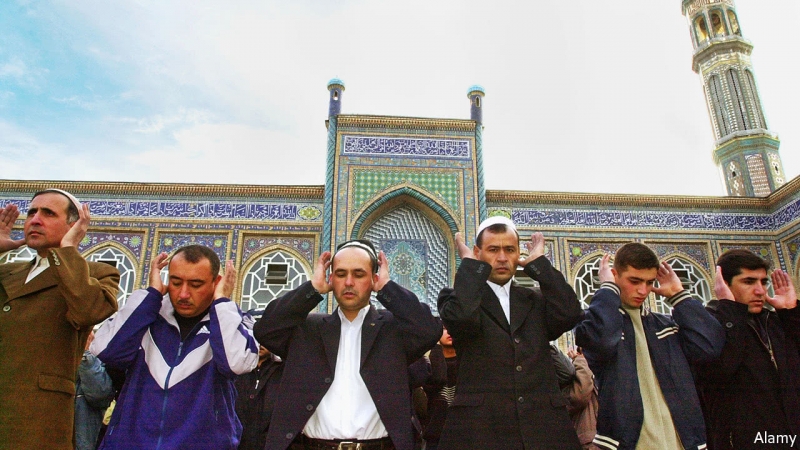
Beards, veils, madrassas and Arabic-sounding names are all banned
The young Tajik man does not want to leave home, despite his mother’s assurance that he looks fine. The day before he had sported a curly black beard, just like his friends from the mosque. But the police had frogmarched him and other bearded young men to the barber shop, where their beards were shaved off. A few of the onlookers laughed, but, once out of the police’s sight, many more grumbled.
Such scenes have become increasingly common in Tajikistan, a landlocked country of 9m bordering Afghanistan and China. In 2015 an official in one of the country’s four regions reported forcibly removing the beards of 13,000 men. Con men have started selling certificates, complete with photographs and official-looking stamps, permitting holders to grow a beard. Initially, the Tajik government blamed the crusade against beards on local police, but it now admits that it instigated the practice to curb religious extremism.
Shaving beards is just one tool the government uses to suppress Islam, even though more or less the entire population is at least nominally Muslim. In 2015 it closed more than 160 headscarf shops. Last year it outlawed Arabic-sounding names. Earlier this year it prohibited the production, import or export of religious books without permission. Obtaining a permit to set up a religious organisation, publish a book on Islam or go on pilgrimage to Mecca is an arduous process.
In 2010 Tajikistan had 19 registered madrassas and hundreds of unregistered ones. The last was closed in 2016. Anyone providing unofficial religious teaching can be imprisoned for up to 12 years. Even studying in religious schools outside the country is prohibited. Almost 3,000 young men attending religious schools in Afghanistan, Pakistan, Egypt and other countries have been coerced into coming home.
There are about 3,700 mosques in the country. They are heavily regulated by the government, down to the subject of the weekly sermon. Using loudspeakers to broadcast the call to prayer is no longer allowed. Children younger than 18 and women are not permitted to attend the mosque. People under 40 are not allowed to go on the haj.
Economist for more